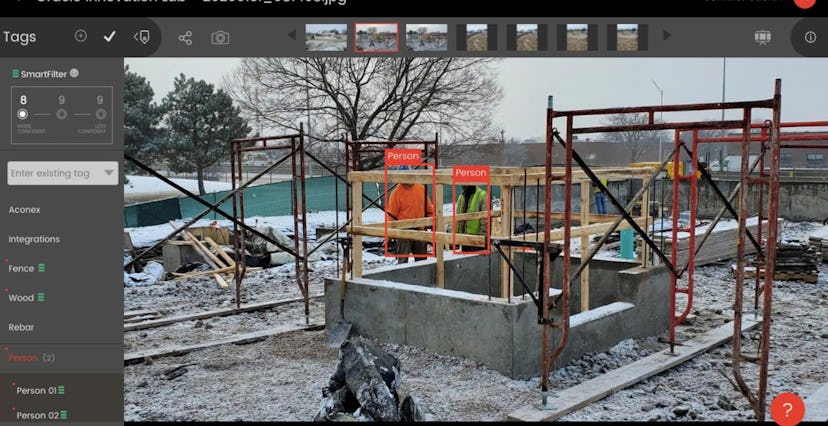Coronavirus
Employers are turning to AI to enforce social distancing for COVID-19
AI-equipped cameras are cheaper than human oversight but have inherent flaws.

As workplaces reopen amid the continued COVID-19 pandemic, employers are adding artificial intelligence (AI) to existing security cameras to track social distancing and mask-wearing, according to Reuters. A few companies spoke to the importance of AI in reopening their businesses, both in keeping workers safe and in concretely demonstrating to insurers and regulators that their workplaces comply with health measures.
Social distancing and wearing masks have been shown to be the most effective methods by which to curb the spread of COVID-19. They’re both also inherently difficult to monitor — especially because humans are so very bad at judging distances by sight alone. Technology is quickly becoming the go-to supplement for these protective measures.
But not everyone agrees that AI is the way to go. Some experts worry about the accuracy of these quickly-assembled programs, while others raise concerns about worker and customer privacy and whether employers might be able to use alleged contraventions of new measures to unfairly dismiss workers.
Another set of eyes — Employers like Chicago’s Pepper Construction say they’ve chosen to invest in AI systems because it’s less expensive than hiring extra staff to stand guard and watch employees. Reuters cites the price of the analysis software to be upwards of $1,000 per year, in addition to the cost of cameras.
Pepper Construction says SmartVid, the software it's purchased, hasn’t flagged anyone just yet: much of its workforce has not returned yet. The company plans to use the software primarily to look at trends and identify places where workers get unnecessarily close to one another.
There will be mistakes — AI is not infallible. Startups are promising high levels of accuracy that experts aren’t so sure about — some companies are even claiming software that can identify coughing and sneezing.
“Most solutions will be in uncharted territory, without a proven track record, and likely susceptible to false-positives and bugs,” said Vinay Goel, a former Google Maps product leader.
The AI software is sure to send up false flags for couples and families shopping together. And then there are more complex variables, such as if workers are close together but speaking through a plexiglass barrier, for example.
The best solution: stay home — While the ongoing operations of some workplaces is certainly essential right now, others choose to open for fear of losing valuable business. In most cases, the best solution for social distancing is to stay home. Keeping to our own separate apartments and houses is the only real way to stop the spread of COVID-19. Most of the AI software being used only sends up red flags after the fact — at which point the damage has likely already been done.
And then there are the privacy concerns. Specialized software to track and identify workers and customers might be installed today to enforce social distancing, but the detailed tracking is likely to stay. That detailed tracking can quickly become dangerous in its ability to reinforce existing power imbalances, especially in the wrong hands.
With very little known about the efficacy of these AI systems in actually fighting COVID-19, buying into them is a shot in the dark for employers. It’s probably better to just let your workers stay home if you’re worried about their safety. Or, perhaps, invest in a bunch of these social distancing laser hats.